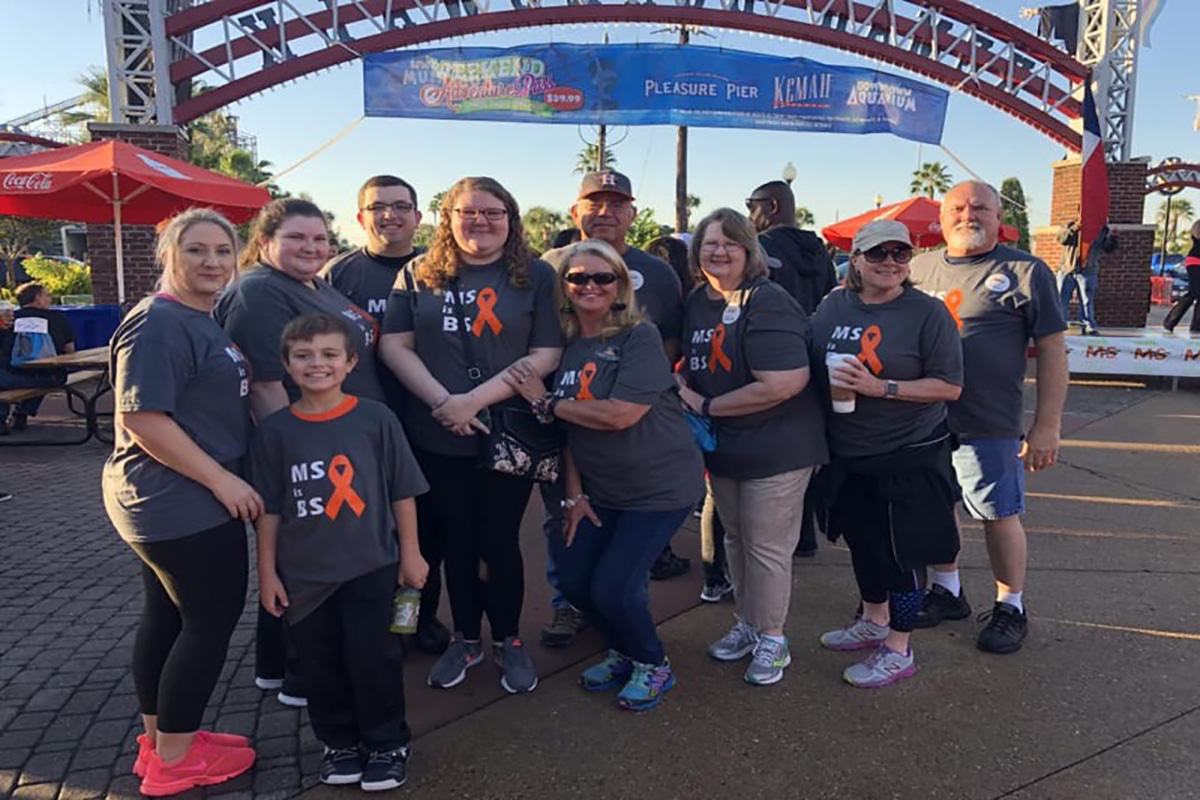Q&A: Jessica Pruitt continues education after Multiple Sclerosis diagnosis
Jessica Pruitt, 23-year-old accounting major, had to put her education on hold three years ago when she was diagnosed with Multiple Sclerosis (MS). The damage caused by the disease affected her sense of balance and crippled her walking, while the medicine compromised her immune system.
For six months, she could not attend class or got to work. She reached remission with the help of medication, but she still retains symptoms that affect her balance and walking. She continues to use medicine to stay in remission and attend school.

Q: What is Multiple Sclerosis, and how were you diagnosed?
A: MS is when your immune system attacks your nerves and creates lesions, which are like scabs on the nerves. It disrupts the flow of information in your brain. When I was 20, the right half of my body went numb. I lost sight in my left eye, went to the ER, went to the PCP, went to [the] neurologist, did an MRI and discovered 15 lesions in my brain. You only need three to qualify for MS.
Q: How did the diagnosis first affect you?
A: At first, I didn’t know how to accept it. I didn’t know what it meant for me in the long run because all I knew about it was that you would eventually wind up in a wheelchair. I was only 20, so I didn’t know how to process it.
Q: What was your life like as you battled to get the lesions under control?
A: MS will always be there be. It’s all about recovering from each flare up. My first relapse, I had to go on IV steroids, which made me starving and moody. I didn’t sleep at all during that period, and I lost a lot of hair. Once I got the flare ups under control, I got on a medicine to help maintain it.
Q: What helped you through this difficult time?
A: Honestly, humor. My family and I laugh at all of my MS quirks like my MS brain. It’s easier to get through things when you can laugh at yourself.
Q: When did you finally make it to remission, and how did it affect your life?
A: I went into remission about two and a half years ago. It made me able to go back to school and work without fear of missing weeks at a time. It let me rejoin society.
Q: How does MS still affect you after being in remission?
A: I have lasting symptoms because of the location of my lesions. It affects my balance and coordination. You wouldn’t know I was disabled unless you saw me walk up a flight of stairs.
Q: How does your condition affect your life at UHCL?
A: I can’t take the stairs. I always have to find a working elevator. I have to hope there aren’t any fire drills or that the power won’t go out. During the fire drill two weeks ago, I had to have help balancing to get down the stairs. I was like a toddler.
Q: Every year there is a Walk for MS, what does it do for the community?
A: It provides funds for research for a cure. Currently, there is no cure, but there are medications to help control the disease. The National MS Society provides programs to pay for medications and medical needs, transportation aids, mobility aids, support programs and scholarships.
Q: What drives you to participate in the Walk for MS?
A: So no one else has to go through this disease at a young age like I did. The experience is overwhelming. There is another Walk for MS Nov. 4 in Houston.
Q: What do you want others to know about MS and the people diagnosed with the disease?
A: Just because people have MS doesn’t mean it’s a death sentence. Medicine is constantly improving to manage and one day cure MS and other diseases. Donations are always welcome to support the research to end this debilitating disease. My team walks every year to support research.

